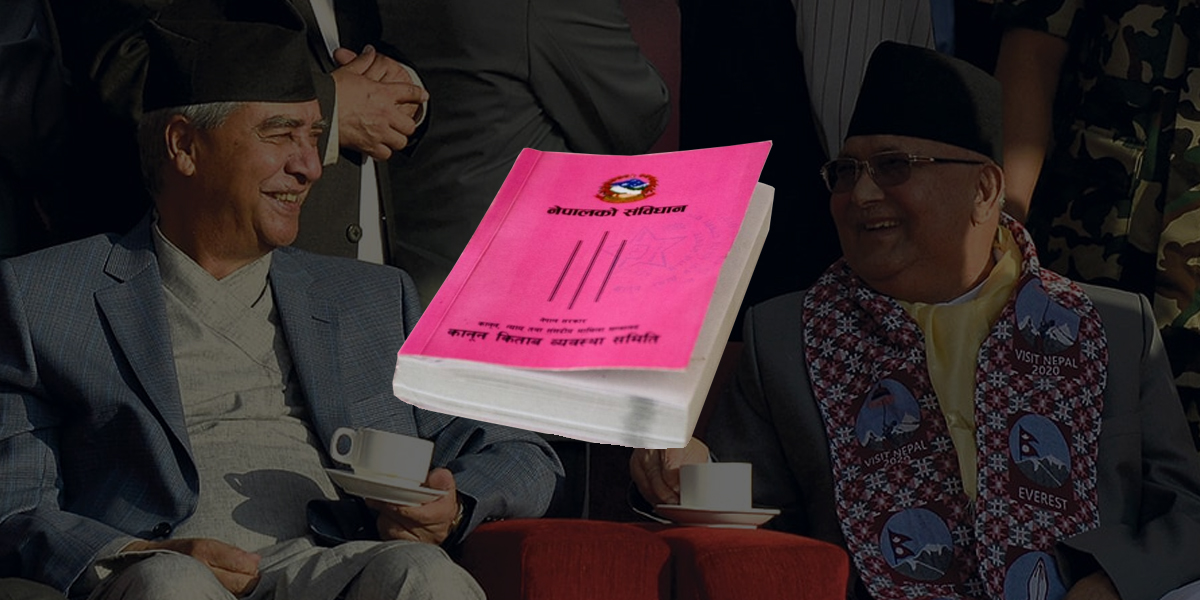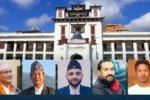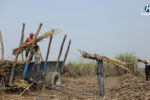KATHMANDU: The government, led by the Nepali Congress and CPN-UML, has identified constitutional amendment as a primary agenda in a seven-point agreement.
However, both ruling parties are grappling with uncertainty over how to approach the amendment and which articles to address, leaving their opponents even more perplexed.
Political factions have taken firm stances regarding the constitutional amendment.
The ruling parties are actively lobbying for changes, while opposition parties appear resistant to altering the status quo.
Nepali Congress leader NP Saud describes the seven-point consensus on constitutional amendments as “abstract and vague.”
He noted, “Recently, even our ruling coalition has acknowledged the need to address shortcomings and complications,” adding that instability seems to be increasing.
In contrast, Santosh Pariyar, chief whip of the opposition Rastriya Swatantra Party (RSP), criticized the ruling party for allegedly attempting to eliminate the proportional election system from the constitution.
During an interaction titled “Constitutional Implementation: Expectations and Reality” held in Kathmandu recently by the Constitution Watch Group and the Institute for Strategic and Socio-Economic Research (ISSR), representatives from the ruling and opposition parties presented contrasting views on the amendment.
The program highlighted the division: ruling party representatives supported the amendment, while opposition representatives opposed it.
Former Prime Minister and Chair of Maoist Center Pushpa Kamal Dahal ‘Prachanda’ asserted that now is not the time to review the constitution before it has been fully implemented.
“This constitution has not been implemented properly. Before we review it, we must account for what has and hasn’t been implemented,” he said, emphasizing the importance of understanding the reasons behind the constitution’s implementation challenges.
Prachanda further warned that constitutional amendments could lead to conflict, stating, “Amending the constitution is a serious and sensitive matter. It may open a Pandora’s Box, risking chaos and potentially thrusting the country into a new conflict zone.”
Despite his reservations, Prachanda clarified that the Maoist Center is not opposed to constitutional amendments.
He suggested a thorough review of the electoral system, government structure, and proportional representation.
“We are not against the amendment of the constitution at all. Let’s review these aspects seriously,” he said.
Similarly, former Foreign Minister and Nepali Congress leader NP Saud added that clarity regarding the current situation and expectations of the constitution would facilitate the amendment process.
“If we can clarify the status of constitutional implementation, it will be easier to draw up a blueprint for the amendment,” he stated, urging the ruling parties to avoid vague language that could lead to instability.
On the other hand, CPN-UML leader and former Finance Minister Surendra Pandey reinforced that the constitution is not seen as immutable.
He called for a consensus on the processes and points of amendment. “We do not consider the constitution unchangeable. We need to identify areas for change and agree on the amendment process,” he said, noting that while certain aspects of the constitution are protected, many others are open to amendment.
Pandey emphasized that his party believes the necessary issues for constitutional amendments should be determined through discussion.
“While constitutional amendments have been discussed, the specific topics have yet to be defined. Let’s establish those topics through dialogue. Our party holds the view that even the issues needing amendment should be decided through discussion,” he stated.
Pandey also argued that there should be no objections from any party regarding constitutional amendments.
“Let’s agree on the process and the content through discussion. I don’t see any reason for disputes about this,” he said. “Those in the government should engage in this process. Our willingness to discuss both the processes and the content should not be limited.”
Rabindra Mishra, senior vice chair of the opposition Rastriya Prajatantra Party (RPP), expressed skepticism about the effectiveness of constitutional amendments.
In contrast, Santosh Pariyar, chief whip of the opposition Rastriya Swatantra Party (RSP), criticized the ruling party for allegedly attempting to eliminate the proportional election system from the constitution.
“Some claim that the proportional election system has caused instability, but we need to look at history. Was there a proportional system from 2001 to 2006? Did political parties not secure majorities during that time? Did the proportional election system bring instability then? Let’s not tell white lies,” Pariyar argued.
He also objected to proposals from some ruling party leaders to amend the constitution to allow for direct elections to the House of Representatives while keeping the National Assembly elected through proportional representation.
“What do you mean by making the House of Representatives a direct election system and the National Assembly a proportional election system?” he asked.
“Does that imply that the House of Representatives will only represent upper-caste men? Are we saying it will exclude women and Dalits?”
“Trying to address this constitution piecemeal will not lead the country in the right direction. We cannot ignore the constitution and expect real change.”
Pariyar urged Maoist Chairman Prachanda to lead the effort in drafting a constitution that better supports marginalized communities.
“I humbly request Comrade Prachanda—some of the best constitutional advancements came under your leadership. Please take the lead once again to create a constitution that is more favorable to Dalits, Madhesh, and the marginalized.”
Rabindra Mishra, senior vice chair of the opposition Rastriya Prajatantra Party (RPP), expressed skepticism about the effectiveness of constitutional amendments.
He likened the ruling party’s approach to merely addressing superficial issues rather than tackling fundamental problems.
“If there are a few holes in your coat, you can sew them up. However, if it’s torn all over, that won’t fix it,” Mishra said.
“Trying to address this constitution piecemeal will not lead the country in the right direction. We cannot ignore the constitution and expect real change.”









Comment